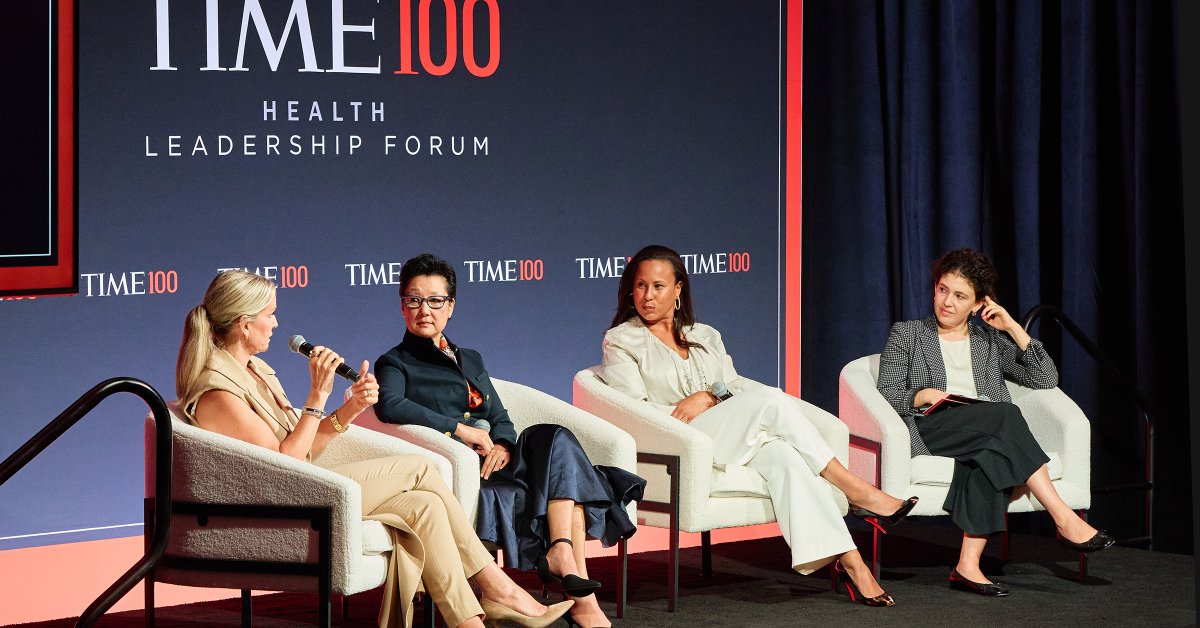Hwang added that health care providers carry some of the responsibility, suggesting that medical schools teach students how to communicate medical information clearly and effectively.
Later on in the conversation, the panelists talked about how society is paying more attention to menopause—and what more needs to be done. Part of the problem, Ashton said, has been a historical lack of funding and research.
“We are behind in terms of our funding and research and intention for all women’s health issues,” Ashton said. “It really is, in my medical opinion, a national embarrassment. But looking back in the rearview mirror is not going to help; we have way too many things we have to address.”
She added that men should be more involved in the conversation too—a sentiment that Taylor-Clark echoed.
“It really does require all of us,” Taylor-Clark said. “It requires men and women to be part of women’s health in order for women to get better; in order for them to have healthier access to care and healthier outcomes, we need men to be involved.”
The TIME100 Health Leadership Forum was presented by Merck, Amazon One Medical, Blood Cancer United (formerly The Leukemia & Lymphoma Society), FIGS, and NMDP.

